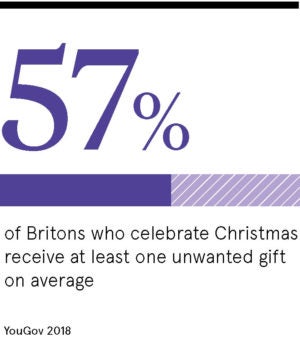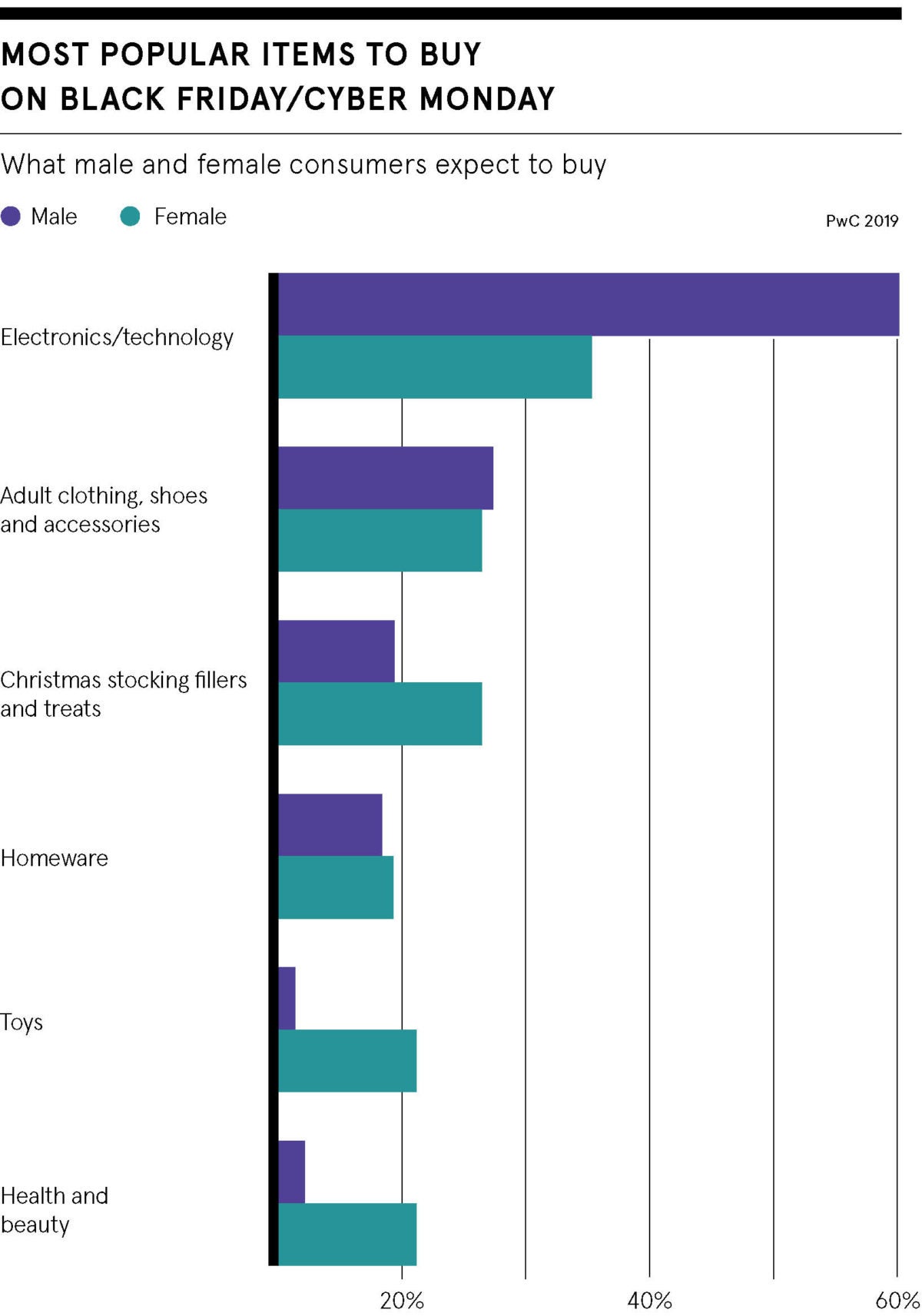Once the calendar turns to November, you can expect to see Black Friday ads and shopping features everywhere, encouraging us to buy, buy, buy at slashed prices. But with scenes of stampedes through shop doors highlighting the consumer frenzy that the shopping event engenders, maybe it’s time to take a step back and rethink the whole thing. Here are five reasons why, if you are able, we should boycott Black Friday altogether.
1) It promotes over-consumption
Not only are Black Friday sales centred upon drastically slashed prices but, importantly, they’re also a “limited time only” event. Black Friday draws us in with the promise of great deals then adds the implicit threat that they’ll only be around for a short time. 
It’s a tried-and-tested method that those in the know call scarcity marketing. It works because when shoppers consider something to be rare or limited, they place more value on it and therefore feel more competitive with others who might get in there first and take the toy, Amazon device or jumper they suddenly so desperately want. Lines such as “while stocks last”, “hurry!”, “don’t miss out” and “limited stock” are intended to create a false sense of urgency which prompts consumers to make impulse purchases.
A day or even a few hours after clicking buy or handing over your card, however, you might well realise that you’ve bought something you didn’t really need or even want, all because brands do their utmost to prod at your fear of missing out, or FOMO. By avoiding the sales in the first place, you can sidestep any scarcity-induced, ill-thought-out impulse buys.
2) It skews perception of value
Many retailers have entered into a race to the bottom, offering the cheapest possible prices to outdo their competitors and maximise sales. As a result, we’ve become used to being able to buy a T-shirt for less than the price of a coffee.
Such low prices are often only possible due to cheap labour and don’t reflect the time and resources that have gone into making the products we buy. When we focus on getting the cheapest possible price for a fancy new iron or a pair of leggings, we don’t consider whether it reflects the true value of the minerals that have been mined, the water that has been used, the impact of global shipping or the input and skill of many workers along the supply chain.
Black Friday, and similar events such as Amazon’s Prime Day, encourage consumers to wait until prices drop even further than the norm before they buy, emphasising ever-cheaper prices over real value. For some, this is an opportunity to buy what they otherwise couldn’t afford, but if those who can were to turn away from bargain culture, we could re-evaluate our perceptions and begin to appreciate the real value of what we buy.
3) It generates huge amounts of waste
When we use Black Friday as an opportunity to do our big Christmas shop, we will, thanks to scarcity marketing and other enticing offers such as free shipping, be tempted to buy more than what’s on our list. It’s easy, normal even, to get carried away in showering loved ones with gifts.
However, in the UK alone, more than 60 million unwanted gifts are received annually, according to a YouGov survey, and one in ten will end up in landfill, says Ziffit. Even gifts returned to retailers can end up as waste too, with five billion pounds in weight of them ending up in landfill alongside the rest.
Of course, on top of the waste caused by the gifts themselves, is the other waste. Plastic mailing bags, polystyrene packing materials, boxes within boxes, cellophane wrap, shopping bags; it all adds up when millions upon millions of products are being bought across the globe.
Keep conscious consumption in mind when you’re shopping this year. Do you really need that extra stocking filler or those few extra items in your basket? Can you source it locally and do away with the packaging? Consider the alternatives and avoid adding to the pile of Black Friday waste.
4) It undercuts independents
Increasingly, smaller, independent brands and shops are turning away from Black Friday sales. Many are doing so to take a stand. They want to promote conscious consumerism, distance themselves from bargain basement sales and encourage people to buy only what they really need or at least what they truly love and will treasure for a long time.
However, many independents simply can’t take the financial hit of trying to compete with such low prices. Big brands with big buying power to match can place enormous bulk orders which cost them less per unit than a smaller brand would pay when placing a smaller order. In the same manner, they can acquire the raw materials it takes to manufacture products more cheaply too.

When profit margins are tight, cutting prices by 30, 50 or even 70 per cent can be financially devastating for small businesses. Often independent brands and shops just can’t match the discounts and find themselves undercut by the bigger names. Rather than buying someone three cheap presents this year, why not buy them one special gift from an independent retailer or give a gift card and let them choose the perfect present for themselves?
5) It doesn’t always mean lowest prices
Most of us have seen the videos: people breaking down shops’ shutters, the infamous Walmart Black Friday stampedes, people fighting over televisions. They’re shown on the news and shared across social media every year and yet still people risk injury, and in extreme cases death, to grab a bargain.
For those on a budget, it may seem like a risk worth taking; the only chance to buy gifts at an affordable price. But a recent investigation by Which? found that 95 per cent of products discounted as Black Friday deals weren’t listed at their cheapest-ever price. Some 61 per cent of items were cheaper or the same price at least once before Black Friday and 48 per cent were actually sold at lower prices after Black Friday.
Even in less extreme scenarios, consumers have to battle with crowded aisles and impossibly long queues. It’s an unpleasant experience all round, but we collectively decided it was worth it for the low prices. However, as it turns out, the idea that we can’t get a better price is a fallacy. Perhaps it’s best to simply sit the whole thing out and wait until the prices inevitably dip again, without all the added frenzy.
1) It promotes over-consumption

